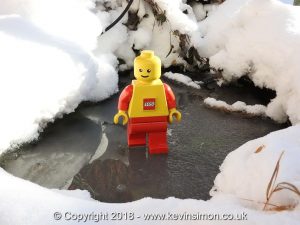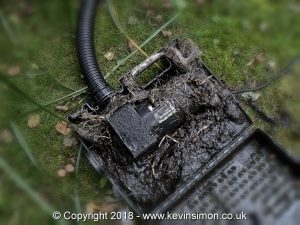

Over the normal winter period there is not that much you really need to do maintenance wise to your garden pond. As the last few winters have been pretty mild. Though the last week I have been having a few calls for advice as at the time of writing this post the beginning of March 2018, we are getting battered from both east and west with severe snow fall in parts and extremely low temperatures. Though as we are based in the west midlands so far we seem to have escaped the most severe weather.
So as I have been given out the same advice the last week I thought it would be a good idea to share a few tips. Hope you find some of these useful, if need further advice please Contact Us
Main Pump / Filters
I would always recommend keeping these running, as the water movement helps a few ways, the first is where the water goes back into the pond this movement will keep that area free of ice, 2nd the circulation will help keep up the oxygen levels in the water. Though if the cold is serve enough that the water flow has stopped or Completely froze up, then turn of the pumps and wait until temperatures warm up a bit before turning on again.
Small Fountains / Water features
If the weather is going to be icy for a few days, It is best to turn off fountains and water features. As these normally have a smaller outlet for water and can easily get frozen up. So if you have a fountain or small water feature that runs off its own pump just turn this off. If you have a pump that feed a large waterfall, or outlet, you just need to turn down the flow to the fountain, this is normally dome by a valve on the outlet of the pump.

Pond Completely Iced over
Now if the whole of your pond is fully iced over, it does help to have an area free of ice, this is for several reasons. The first is to allow the build-up of any gases from rotting plant material etc. to escape out of the water. And the other is to let a small amount oxygen into the water.
To make a hole in the ice the best way is to fill up half way a saucepan of boiling water and place on the ice, this will melt the ice around the saucepan. Don’t worry the saucepan wont sink as long as halfway full and will balance out to the water level.
NOTE: Don’t hit or crack the ice to make a whole, as the noise shockwave of this can be harmful to the fish.
Misconceptions About Pond Heaters
A lot of people have pond heaters in there ponds, but really don’t understand fully how they work. A pond heater is normally a tube shape with a larger top, this its the float part either with the heater element in or that is in the longer tube shape.
The main misconception with pond heater is that this will keep the whole pond warm. This is not true as the main use of a pond heater is to keep an area free from ice (see above) To keep a whole if your pond does ice up doesn’t really require a heater, some people use footballs, tennis ball even polystyrene foam blocks.
Things To Do Before a Cold Snap

Make sure you clear away any dead plants and fallen leaves, as this stops then decomposing in the water, which in turns stops the build up of harmful gases in the water.
Taking plants out for winter?
Some people take there plants out of the pond and keep them somewhere sheltered over the winter months. Personally I don’t as if your pond is properly maintained throughout the year the plants will have a healthy root system and that will make them more resilient to the cold.
Clean Filters & Pumps
make sure before the winter season that your pumps are free flowing and not blocked and also your filter is clear of debris. This helps the water flow better as well as less chance of water freezing or frost damage if very low temperatures.
Stop Feeding
One question I am asked a lot is when to stop feeding your fish in the run up to winter. Well time wise there is no specific time, as it is more to do with temperatures than the time of the year.
As a rule of thumb once temperatures in the day fall below 5°c for a few days in a row this is the time to stop feeding. Don’t worry your fish will be fine as there is always enough food within the pond to keep them going and over the winter they are more dormant so don’t need as much food to survive.
What Happens To Your Fish Over Winter
First over the winter period you wont see your fish coming to the surface as they stay down at the bottom of the pond. This is because the bottom of the pond the water is warmer than at the surface.
As temperatures drop the fish will go into a semi hibernation Called Torpor. In this state some of the following occurs: reduce body temperature, reduced breathing rate, slows reaction times, slow reaction times and slowed metabolism. This allows the fish to save energy. Which is why they don’t need feeding over this period. It is normally coming upto Spring they start moving about more, but again this is more to do with temperature change than time of the year.

Further info
This is the advice I give all my customers, you may read or others may give different advice, but over the years as myself and my late father before me running this business have never had any problems from the advice we have given.
To make sure your pond is prepared for future winters, I would always recommend having a service to your pond in the autumn. We fully clean the pond as well as pumps filters etc. and remove dead plants. So really nothing you have to do yourself. So if you are around the midlands area, get in touch and we can help. Alternatively if out of the area that we cover, we can give free advice via email so get in touch.

